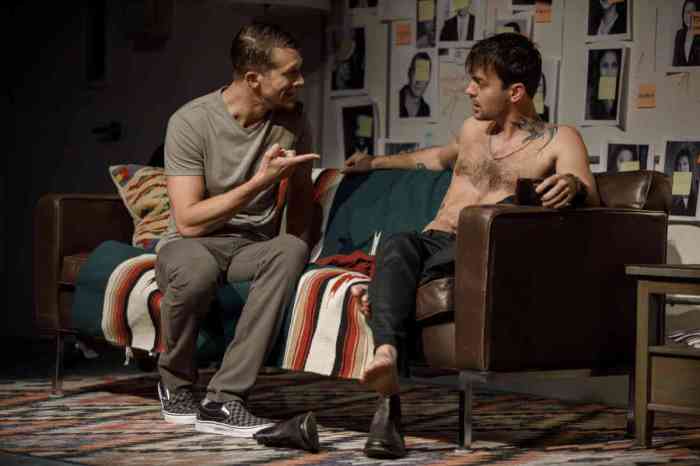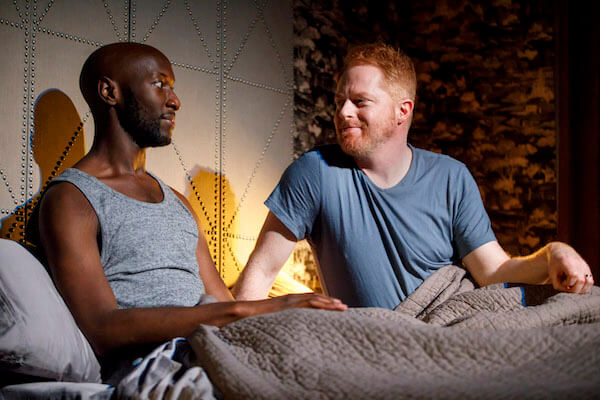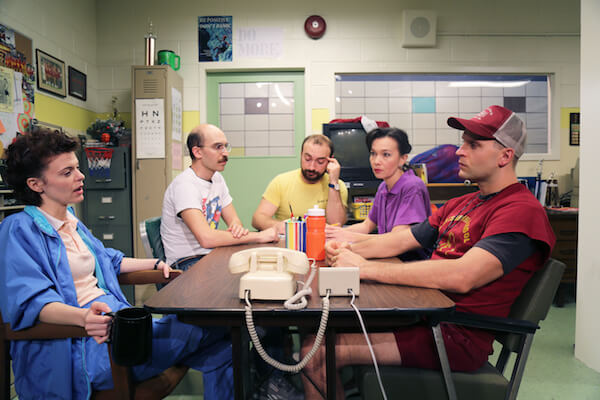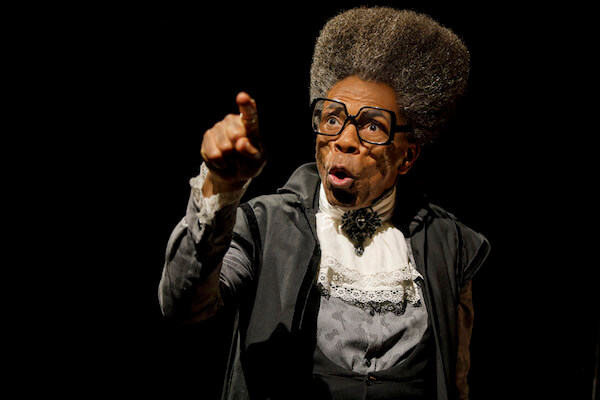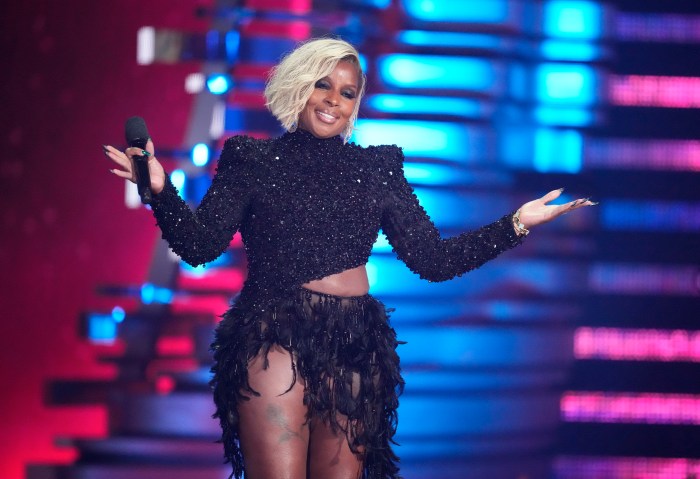Carrie Coon and Alex Hurt in Melissa James Gibson’s “Placebo,” at Playwrights Horizon through April 5. | JOAN MARCUS
“Am I getting the real thing or a placebo?” That’s the question at the center of “Placebo,” Melissa James Gibson’s bold new drama about desire and sticky relationships set against the backdrop of a clinical trial, now at Playwrights Horizons.
The study drug, brand name Resurgo, is designed to stimulate the libido in women (“the female Viagra,” somebody calls it). Yet this wry, thoughtful drama is concerned with arousal of all sorts — sexual, emotional, spiritual, intellectual — in both women and men.
Louise is a doctoral candidate working with study participants at a university research hospital, where one particularly desperate patient, Mary, is wracked with dread over losing her sex drive. Louise, as it happens, has got problems of her own, like an ailing mother in steep decline and a testy, nicotine-addicted boyfriend named Jonathan slogging to finish his dissertation on a classical philosopher. When Tom, a handsome scruffy “lab dude” comes on the scene, her life is complicated further.
Looking for happiness at the corner of deception and perception
The study is double blinded, meaning that both patient and administrator do not know who is taking the actual medication or the placebo, so as not to bias results.
Under the direction of Daniel Aukin, a frequent collaborator of Gibson’s, this savvy if at times labored drama makes full use of placebo as metaphor for the human condition, contemplating the power of positive thinking and the haphazard pursuit of happiness (“stalking happiness with a machete,” Tom calls it).
“Do you think it becomes real… after you do it for a while?” wonders Louise. “Does fake happiness make you happy?” The placebo effect, as presented here, is not just the province of clinical trials.
For her part, Gibson injects the script with fascinating, clever touches. For instance, Louise reveals the origin of placebo, a Latin word meaning “I shall please” that refers to mercenary mourners in the Middle Ages paid to “act like they care.” Characters keep tripping each other up with pesky homonyms (needing/ kneading me, oral/ aural stimulation), underscoring the glitches inherent in everyday discourse. When not obsessed with achieving their desires, they seek “the desire to desire.”
The versatile Carrie Coon, who scored a Tony nomination as the sloshed, dimwitted Honey in “Who’s Afraid of Virginia Woolf,” delivers an impressive turn as the sullen, snarky health technician more skilled at caring for others than for herself. As her conflicted, live-in boyfriend, William Jackson Harper shifts nimbly between bouts of bravado and self-doubt.
The supporting cast is no less talented. Florencia Lozano brings a menacing intensity to Mary, aching to know if she’s taking the real drug. Alex Hurt (hunky son of actor William Hurt) adds a weirdly alluring dimension to the underwritten stock character of office geek.
Problem is, the cast might be doing their jobs too well. As written, the characters are an unappealing, sorry bunch. A central conflict — will Louise and Jonathan resolve their differences and stay together? — is blunted because, frankly, it’s difficult to care.
What’s more, the intentionally protracted scenes, like a repeated recording of a couple having savage sex, Louise singing an entire dirge in Latin, or the final smackdown between the embattled lovers, are more tedious than captivating.
More successful is the budding relationship between Louise and Tom, who invent a silly relay race game, running back and forth from a vending machine. The temperamental machine, I might add, groaning when fed dollar bills and occasionally spitting them out on a whim, deserves to be listed in the cast of characters (Ryan Rumery gets credit for the sound design).
So, like any well-controlled clinical trial, does this engaging albeit uneven enterprise offer up any significant conclusions — in this case, about stalking happiness? Not so much. As Mary proclaims, “We’re the double blind leading the double blind.”
PLACEBO | Playwrights Horizons; 416 W. 42nd St. | Through Apr. 5: Tue.-Wed. at 7 p.m.; Thu.-Sat. at 8 p.m.; Sat.-Sun. at 2:30 p.m.; Sun. at 7:30 p.m. | $75 at ticketcentral.com or 212-279-4200 | 95 mins., no intermission



























